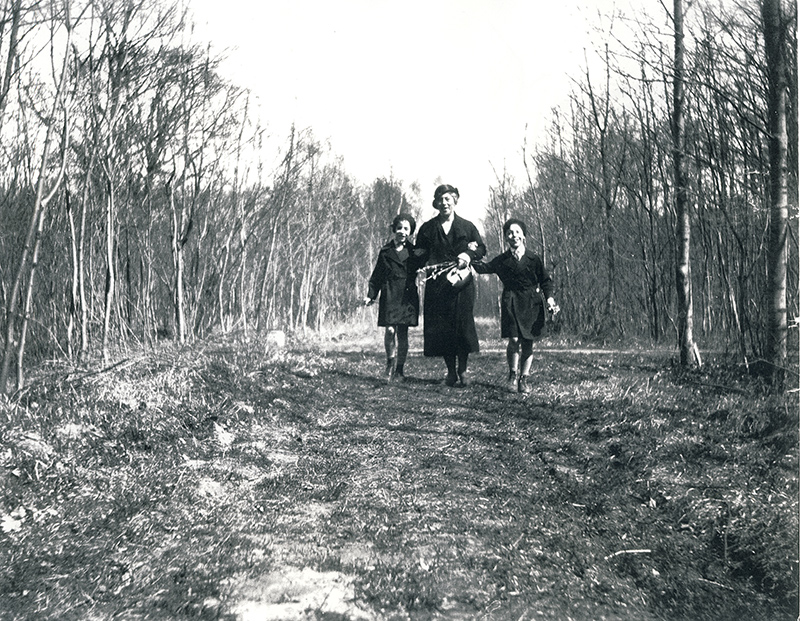Becoming a Refugee
Time 0:03:48
Ilse Thompson (IT): And, um, we had a wonderful time. But then the day came when I met my girlfriend on the street. A girlfriend, my best friend, on the street, and she looked, didn't look at me, she didn't say hello. She was busy walking to wherever she was going. She was not allowed to speak to Jewish children.
Steve Schwinghamer (SS): How old were you when that happened?
IT: Well, I was, I always forget. This is not in this book, it's in another book I wrote but, um, well, I was born in ‘23 and that was Grade—I was in Grade Six, so I went to school in 1933, I think. No, ’33, that would be ten, ten years. Well, it was about, I was about ten, or eleven.
SS: Ten or eleven?
IT: Yeah. And I took piano lessons and I was very good. Well, if I can say so myself. I can't play like that anymore. I played Beethoven Sonatas when I was eleven, and Chopin Etudes when I was the same age. And, my father, who was self-taught, he loved Beethoven, and our bedroom—my brother over here and me right beside wall and my brother on the other side, right beside a wall where there was some linen, a linen wall—they put, they wanted to cut out the—there was a big door they wanted to close—and he played the piano every night. It came to the point I could not sleep if he wasn't there. So, the maid had problems when—the times they went out that much, but I'm used to going to sleep with music on, with my father's music. And we talked music and he showed me music, and when we went for a walk he gave me arithmetic problems because I loved arithmetic. Mathematics it wasn't, it was just counting. I loved that and he gave me questions. And I was much closer to my father because of the music, than I was to my mother. But when Hitler came, well, you know, we thanked God. I don't believe in God anymore after all the holocaust at that time. He—they closed the—no more school for Jewish children. So, the only way children could get an education—if you can call it that, what I had wasn't hardly an education. We were sent to—Jewish synagogues opened their facilities, some synagogues, for teaching. And of course the teachers were Jewish that were fired from their ordinary schools and the German—what is very important to know is, in Germany, Jews were first Germans, and Jews only on the side. We were not religious. There were some religious Jews somewhere but we didn't go to the synagogue, we didn't eat kosher food. We were Germans. And my father was in the war, you know. He fought for the Kaiser.
Oral History 08.04.02IT with Ilse Thompson
Canadian Museum of Immigration at Pier 21
Return to Refugee Experiences Gallery

Canadian Museum of Immigration at Pier 21 [DI2014.427.2]